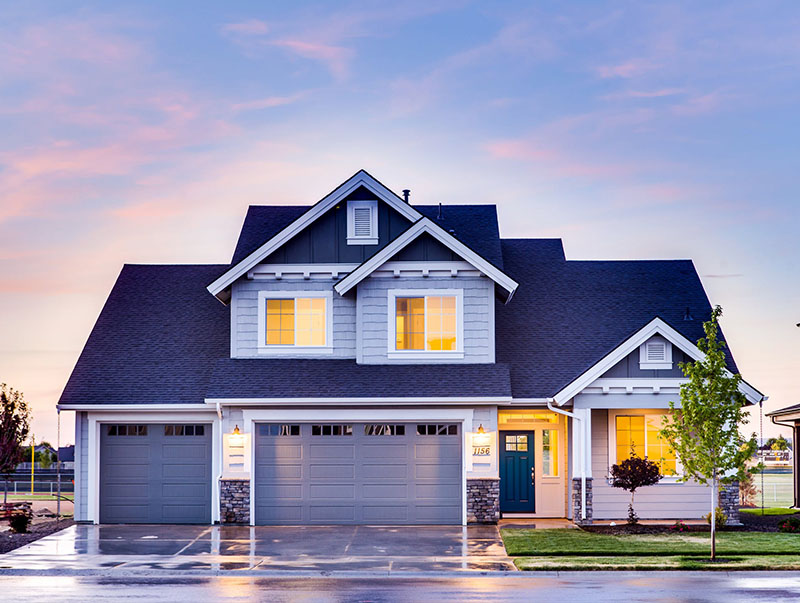REQUIREMENTS

- Fully accomplished application form
- Landline contact number
- Two (2) valid IDs (e.g., driver’s license, SSS, GSIS, passport, PRC ID, company ID, and other government-issued ID
- Applicable Proof of Income
- Income Tax Return or Form 2316 duly signed by the employer's authorized representative, if applicable
- Audited Financial Statement with BIR stamp, if applicable
Got any questions? Feel free to contact us
Quick Guide to Foreclosed Real Estate
What Are Foreclosed Real Estate Properties?
Foreclosed real estate properties are real estate properties like houses, condominium units, apartment buildings, or commercial spaces that have been “taken over” by the lender. This lender or creditor can be a bank like Robinsons Bank, a credit company, or other financial institutions. It can also be government agencies like the Home Development Mutual Fund (HDMF or more popularly known as Pag-IBIG Fund) or the Social Security System or SSS.
Vacant lots can also be foreclosed, but some lending institutions in the Philippines tend to refer to them as “repossessed” vacant lots. Almost any other form of tangible property may also be repossessed, like jewelry, paintings and other forms of artworks, and even electronics and machinery.
Why And When Does Foreclosure Happen?
Your real estate property can be foreclosed or repossessed when you fail to make payments for a loan, based on the agreed upon terms with your lender. In addition, your real estate property can be foreclosed if you have not paid the corresponding RPT or real property tax to the local government. If you’re a first-time homeowner, forgetting to pay the RPT or even not knowing about RPT is a common problem. Meanwhile, if you own a condominium unit, it’s easy to think that your association dues already include the RPT. Make sure to clarify this with the condominium’s management so you don’t end up missing payments.
Your RPT is the lesser worry, however, as this is paid annually and the amount is usually lower. As a real estate property owner, you should focus on making your loan payments on time. If you don’t, your lender can exercise their right to foreclose your property and put it up for sale or auction. This will help the lender recover losses because of your non-payment. Note that foreclosures do not happen overnight, since they have to go through the proper channels and processes.
I Want To Buy A Foreclosed Property. Is It A Good Idea?
In general, it’s a good idea to buy foreclosed properties, especially because of the cheaper prices. The down payments can be as low as 5 percent, compared to up to 30 percent for new properties. In turn, this will mean that you will make lower monthly payments. In addition, if you buy foreclosed properties in a quickly developing area, it will most likely appreciate in value. This makes the prospect even more attractive.
Still, no matter how tempting it might be to invest, buying foreclosed properties requires careful analysis of various factors. Some of the primary considerations are the location and the condition of the property, regardless if it’s for commercial or residential use. Is it located somewhere that gets flooded often or is near a fault line? Is it in good condition or will you need more money to refurbish it to make it suitable to live in or rent out to tenants? Remember: foreclosed properties are sold as they are, so every little bit of repair will be shouldered by you as the buyer. Of course, you should also consider all the added fees and legal necessities, such as the aforementioned RPT.
Where Can I Find Listings Of Foreclosed Properties?
You can easily find listings of foreclosed properties in the Philippines through a quick search online. Robinsons Bank and other banks that offer housing loans have pages on their websites dedicated to foreclosed properties. There are also listings displayed at bank branches; if there aren’t any, it’s possible to request for a copy that they can show you for your review.
Government agencies like Pag-IBIG and SSS also have listings both on their websites and physical offices. The Bangko Sentral ng Pilipinas and Land Bank of the Philippines also have their own repossessed and foreclosed properties listings. There are also auction schedules posted along with these. Finally, there are also housing portals that list foreclosed properties in the Philippines, collated and curated from various local sources.
Foreclosed homes and other repossessed real estate properties are non-performing assets. Banks and other lending institutions are actively and aggressively marketing these properties so that they can generate income. In short, you won’t have any problems finding something that suits your needs.
How Do You Buy Foreclosed Properties?
There are two ways to acquire foreclosed properties and other repossessed real estate: participating in government auctions or buying directly from banks like Robinsons Bank and other lenders. Of the two, buying direct would be the better option.
If you are considering buying foreclosed properties in the Philippines, here are a few things to keep in mind.
- Make sure you have the means to pay.Remember that you’re not going to be the only one looking to purchase a certain foreclosed property. Therefore, you have to present yourself as the “better” buyer to the eyes of the sellers. It’s best if you’re already prequalified for a loan from a bank or other lenders, since this is a good indicator that you have the financial capacity. Moreover, coming prepared with a means to pay shows that you are serious about buying the property.
- Prepare some extra cash.If you’re eyeing a high-potential property, be prepared to bid against other buyers. This is especially true for real estate auctions. Be ready with some cash on hand to make an irresistible offer to the sellers. You should also not rely solely on housing loan proceeds. Sure, it can be enough to cover the list price of the property you intend to buy. However, in many cases, those buyers and bidders who can make a down payment on the spot usually get awarded the property. They may even get bigger price cuts. Just think of the discounts you get when you buy gadgets and electronics on a cash basis compared to when you buy via installments through credit cards or loans.
- Find an accredited broker.Working with a bank-accredited broker will give you more peace of mind and also make buying foreclosed properties as hassle-free as possible. This is because foreclosed real estate properties are sold on an “as-is, where-is” basis. If you don’t work with a broker, you’ll be the one to inspect the property (or properties), prepare all necessary documents, and more. A broker is well-equipped to handle all of these things, which helps ensure that you’ll get the best deals. Pag-IBIG, SSS, and other agencies also have a list of accredited real estate brokers. Make sure to work only with these authorized individuals if you’re looking to acquire properties foreclosed by the government.
An added benefit of working with brokers is that they know all the fees, taxes, and documents you have to pay and prepare as the buyer. These include documentary stamp taxes, transfer taxes, notarial fees, and registration fees, among others. There are also association dues for condominiums or townhouses, as well as certain permits for building and renovations.
- Inspect the property personally.Any broker worth their salt will inspect every nook and cranny of the property you’re planning to buy. They will also inform you of everything they’ve found, good AND bad. However, nothing can beat seeing the property for yourself. Foreclosed properties are previously owned, which means that there would probably be some defects that need fixing. Even empty lots can have “defects,” like bad topography and proneness to flooding. That’s why it’s still best to visit the property and do your own round of inspections. As a general guideline, avoid properties that have issues that will take a long time to fix. Not only will you incur more repair costs, it will also take you longer to be able to use the property you’ve bought.
- Evaluate the location.As mentioned earlier, one of the considerations for acquiring foreclosed properties is the location. It doesn’t matter if you’re going to use it as your own residence or as an income generator. In fact, the location is even more important if you’re looking to earn money from your purchase. You should always check various aspects of the property’s site, such as nearby roads and highways, transport options, and establishments like malls and schools. If you’re looking for a long-term investment, these infrastructures and services don’t have to be available at the time of your purchase. As long as these roads and establishments are going to be built, the real estate value in that area will appreciate.
Some of the best places to acquire foreclosed properties include Bulacan, Cavite, Laguna, and Rizal. Many housing projects from reputable developers are located in these provinces. Moreover, these locations are within easy reach of Metro Manila, which is a major selling point for real estate whether foreclosed or not, residential or not.
- Attend auctions, if you can.This isn’t absolutely necessary. However, property auctions usually have a number of properties that aren’t listed on websites. Think of these lots, houses, and condo units as “exclusives” and those who attend the auction get first dibs and special deals. Property auctions also gather plenty of investors and brokers in one place, making it easier for you to touch base with the right people.
Can I Earn By Acquiring Foreclosed Properties?
There are people who buy foreclosed properties for personal use. They purchase empty lots to build their dream homes on, or they buy homes that meet their needs and require only a bit of repair or renovations.
Still, there are others who find income-generating opportunities with foreclosed properties and repossessed vacant lots. Here are a few ways you can do the same.
- Rentals.This is one of the most straightforward ways to earn from foreclosed properties. You buy a house or any other kind of residential unit, refurbish and repair it where necessary, then turn it into a house or room for rent. The earnings from the rental payments can then cover expenses like monthly loan payments, insurance, and taxes. If you have a bigger budget, you may also buy repossessed lots and construct multi-unit apartments or commercial spaces. This option will take longer for you to generate the income, however, so make sure you’re really ready to shell out the money and wait for the ROI.
- Rehabbing.The name will already give you an idea of this earning opportunity: you rehabilitate a foreclosed property bought at a lower price and then resell it at a higher value. It’s a little riskier than renting out the space, especially if you go over-budget during the process of rehabilitating the property. However, if you do your homework and manage your time and money properly, you can easily rake in huge profits since your initial investment is a lot lower.
- Commissions.For accredited brokers, you can earn a steady rate of commission if you negotiate the sale of a foreclosed property. They key thing here is to ensure the buyer informs the seller that you are the one who referred the property and negotiated the deal. Depending on where the property was listed, you can earn anywhere between 1 and 5 percent commission. Another benefit of being an accredited broker is that you may be able to get listings of foreclosed properties before they get released to the public. This is great if your clients have specific requests or you yourself are looking for real estate properties to buy.
- Flipping.Think of flipping as the real estate version of buy and sell. You buy foreclosed properties and then sell them quickly with zero or minor changes. This is perfect if you’re an agent or broker with buyers who always have customers ready to make a purchase.
What Can I Do To Prevent My Property From Getting Foreclosed?
There are situations when you can’t really help but get your real estate property from getting foreclosed or repossessed. In other cases, there are plenty of ways to prevent this scenario. These are just some of the things you can do to prevent foreclosure and repossession.
- Have a plan.Do you want to have a steady cash flow and rent out the property that you bought? Do you plan to be a real estate “flipper”? Or do you simply want to buy or build your dream home? Whatever you want to do, make sure that you’ve carefully studied it and that you have a solid plan of execution. Don’t buy foreclosed properties “just because.”
- Be honest.When it comes to the appraisal of the property you want to buy, honesty is the best policy. If the appraiser is saying that they can pad the results so you can get a higher loan amount, decline. It’s nice to see a huge number printed on a check, but you might not be able to pay the agreed upon sum in a timely manner. Another reason to stick to the real market value of the property you’re buying is for when you want to sell the property you bought in the future. If you jacked up the appraisal value, you won’t be able to sell it at the price you want. Worst case is that you’ll be selling at a loss. Put yourself in the shoes of the buyer: would you want to buy an overpriced property? Probably not, so be honest yourself.
- Insure yourself and your property.Foreclosed properties in the Philippines are often a result of medical emergencies or situations like an accident or a sudden death in the family of the original buyer. The money that’s supposed to go to paying off monthly amortizations ends up getting spent on hospital bills, medicines, and funeral and burial arrangements. This is why getting a comprehensive health and life insurance is important, so that you don’t get caught off guard by these situations. At the same time, it’s also important to insure your property. Get ample coverage for fires, acts of nature like storms and earthquakes, and even rental income.
- Make sure you can pay the amortization.Ideally, your amortization should not exceed 30 to 40 percent of your monthly income. This way, you can cover your monthly payments and still have enough money for your needs, leisure, savings and investments, and emergency funds. Ask your lender to show you a computation of the monthly mortgage before you agree to the terms.
Can I Buy Back My Foreclosed Property?
If worse comes to worst and your property ends up getting foreclosed or repossessed, there’s still hope to recover or buy it back. One way is, of course, to pay off the entire loan amount to your lender before it gets put up for sale or auction. Note that there are also fees that should be paid as a result of foreclosure or repossession. Just think of this amount as a penalty. Another way is to file an action to stop the foreclosure or repossession, when applicable.
If the property has already been auctioned off, there are two options to choose from. You can redeem the property within the redemption period set by the law, or you can file a case to repeal the mortgage or sale.
No matter which way is applicable to your situation, you will need the help of a lawyer to help you recover your foreclosed property. The earlier you get legal help, the better. Make sure to have them explain everything to you in layman’s terms, since the proceedings can get a little complicated.




